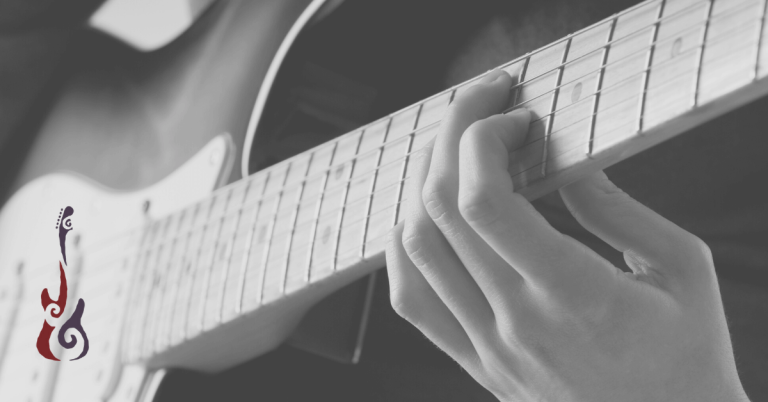The Art of Effective Practice: A Guide for Musicians
Practice is the lifeblood of musicianship, the cornerstone of growth, and the pathway to mastery. Whether you’re a seasoned performer or just starting your musical journey, understanding the art of effective practice is vital to reaching your full potential.
We will delve into the impact of practice on your musical growth and development. We’ll also explore how practice sets the stage for progress and acts as a catalyst for unlocking your musical abilities. By recognizing the transformative power of focused and deliberate practice, you can make significant strides on your instrument and bring your musical aspirations to life.
Through this blog, we will navigate the intricacies of creating a structured practice routine, setting clear goals, developing effective strategies, fostering focus and concentration, troubleshooting practice challenges, and maximizing efficiency. You’ll discover how to cultivate a positive practice mindset and find joy in honing your craft.
Join us on this enlightening journey as we unlock the secrets of effective practice and empower you to become the best musician you can be.
Understanding the Purpose of Practicing Music
Effective practice means understanding its purpose and its role in your musical growth. Doing so lets you approach your practice sessions with clarity, intention, and purpose.
Identifying your musical goals and objectives
Envision your musical aspirations. What do you hope to achieve? Is it mastering a challenging piece, improving your technique, or composing your music? Take the time to define your goals and objectives. This process will give you a sense of direction and fuel your motivation as you strive towards tangible milestones.
Breaking down long-term goals into short-term goals
Once you have your long-term goals in mind, break them down into manageable short-term goals. By setting smaller targets, you create a roadmap that leads to your ultimate objective. Each short-term goal achieved will provide a sense of accomplishment and propel you forward.
The role of deliberate practice in skill acquisition
Deliberate practice is the key to skill acquisition and mastery. It involves focused, structured, and mindful practice sessions that push you out of your comfort zone. By identifying specific areas that require improvement, designing exercises to target those areas, and challenging yourself with increasing difficulty, you can accelerate your progress and develop expertise in your craft.
Embrace the power of understanding the purpose of practice. By identifying your goals, breaking them down, and engaging in deliberate practice, you’ll embark on a path of continuous growth and transform your musical aspirations into reality.
Creating a Structured Practice Routine
To make the most of your practice sessions, establishing a structured routine is essential to set the stage for focused and productive practice. A well-designed practice schedule can maximize your musical development and maintain consistency in your journey.
Setting aside dedicated practice time
Treat your practice as a priority by allocating dedicated time to it. Consider your schedule and find periods when you can fully immerse yourself in your music without interruptions. Treat this time as sacred and non-negotiable, ensuring you honor your commitment to your craft.
Balancing frequency and duration of practice sessions
Strike a balance between the frequency and time of your practice sessions. Consistency is key, so aim for regular practice rather than sporadic marathon sessions. It’s often more effective to have shorter, focused sessions multiple times a week than one long session now and then. Find a rhythm that works for you and allows for steady progress.
Designing a schedule that aligns with your preferences
Tailor your practice routine to suit your tastes and circumstances. Consider whether you are more productive in the morning or evening, and align your practice schedule accordingly. Break down your practice time into manageable chunks, focusing on different aspects such as technique, repertoire, and musicality. Experiment with different approaches until you find the schedule that brings out the best in you.
Creating a structured practice routine establishes a foundation for consistent growth and improvement. Remember, the key is to find a balance that works for you, maintain regular practice sessions, and stay committed to your musical journey. Each practice session brings you one step closer to reaching your musical goals.
Setting Clear and Specific Goals for Your Musical Development
Clear and specific goals guide your musical journey, providing focus and direction to your practice. By setting measurable and achievable goals, breaking them down into manageable tasks, and tracking your progress, you can stay motivated and celebrate the milestones you achieve.
Defining measurable and achievable goals
Start by defining clear, measurable, and attainable goals. Rather than setting vague goals like “improve technique,” make them specific, such as “play a challenging passage at 120 BPM with accuracy and control.” This clarity allows you to measure your progress and ensure your goals are within reach.
Breaking down goals into manageable tasks
Once you’ve established your goals, break them into smaller, manageable tasks. You create a roadmap that leads to success by dividing your goals into actionable steps. Each task completed brings you closer to your desired outcome, providing a sense of accomplishment and keeping you motivated.
Tracking progress and celebrating milestones
Regularly track your progress to see how far you’ve come. Keep a practice journal, use apps or tools to monitor your advancement, and evaluate your performance objectively. Celebrate the milestones you achieve along the way, no matter how small they may seem. Recognize your progress, reward yourself for your hard work, and use these celebrations as fuel to keep pushing forward.
Setting clear and specific goals, breaking them into manageable tasks, and tracking your progress are essential elements of effective practice. Doing so lets you stay motivated and focused and gain a sense of fulfillment as you witness your musical growth unfold. So, set your sights on your goals, break them down, and let each step forward ignite your passion for music.
Developing Effective Practice Strategies
It’s important to incorporate effective strategies targeting different aspects of your musical development to maximize your practice time. By including warm-up exercises, technical drills, sight-reading, ear training, and thoughtful repertoire selection in your practice routine, you can enhance your skills and musicianship.
Warm-up exercises and techniques
Begin your practice sessions with warm-up exercises that activate your muscles and prepare your body for playing. Incorporate stretches, finger exercises, and breathing techniques to improve flexibility, dexterity, and overall physical coordination.
Technical exercises and scales for skill development
Dedicate time to technical exercises and scales tailored to your instrument. These exercises help refine your technique, improve fingerings, and develop muscle memory. Focus on challenging areas and gradually increase the difficulty to push your limits.
Sight-reading and ear training for musicianship enhancement
Incorporate sight-reading exercises to improve your ability to read and interpret music on the spot. Train your ears by practicing ear training exercises, such as identifying intervals, chords, and melodies by ear. These skills enhance your overall musicianship, enabling you to play accurately, expressively, and musically.
Repertoire selection and practicing pieces effectively
Choose a diverse repertoire that challenges and interests you. Break down the components into manageable sections and practice them systematically. Work on technical passages, dynamics, phrasing, and interpretation. Employ techniques such as slow practice, repetition, and targeted problem-solving to overcome challenges effectively.
By incorporating these effective practice strategies, you’ll develop a well-rounded skill set and deepen your musical understanding. Remember to be consistent, patient, and proactive in your practice. Embrace each practice session as an opportunity for growth, and you’ll witness remarkable progress.
Fostering Focus and Concentration
In music, focus and concentration are essential ingredients for effective practice. You can cultivate heightened awareness and engagement during your practice sessions by minimizing distractions, practicing mindfulness techniques, and engaging in mental and physical preparation.
Minimizing distractions during practice sessions
Create a dedicated practice space free from distractions. Silence your phone, close unnecessary tabs on your computer, and communicate to those around you that you need uninterrupted time. Clearing your physical and digital environment will help you focus and stay engaged with your music.
Mindfulness techniques for staying in the moment
Incorporate mindfulness into your practice routine. Before starting, take a few moments to ground yourself, focusing on your breath and bringing your attention to the present moment. As you play, direct your full awareness to the music, the sensations in your body, and the sounds you produce. Whenever your mind wanders, gently bring it back to the present.
Mental and physical preparation before practice
Before your practice session, engage in mental and physical preparation. Set clear intentions for what you want to achieve, visualize yourself performing successfully, and mentally warm up by reviewing the music in your mind. Additionally, engage in physical warm-up exercises to loosen your muscles and prepare your body for playing.
By fostering focus and concentration, you enter a state of heightened receptivity and attentiveness, allowing you to absorb information, refine your technique, and connect deeply with your music. Embrace these practices as part of your routine, and watch as your practice sessions become immersive and transformative experiences.
Troubleshooting Practice Challenges
As a musician, you will inevitably encounter challenges along your practice journey. However, with the right mindset and strategies, you can overcome plateaus, address technical difficulties, and seek guidance to propel yourself forward.
Overcoming plateaus and motivation slumps
Plateaus and motivation slumps are common in any pursuit, including music. When you feel stuck, remind yourself of your passion and why you started this musical journey. Break your routine by exploring new genres, collaborating with others, or setting new goals. Mix up your practice routine to keep things exciting and challenge yourself in different ways. Remember, perseverance and a positive mindset are crucial to overcoming these hurdles.
Addressing technical difficulties and refining techniques
Technical challenges can impede progress, but they are also growth opportunities. Break down challenging passages, isolate problem areas, and work on them methodically. Utilize slow practice, practice with a metronome, and experiment with different picking techniques or fingerings. Consistency and deliberate practice will help refine your techniques and conquer technical hurdles.
Seeking guidance from mentors or teachers
There are many benefits of private music instruction. Feel free to seek advice from experienced mentors or teachers. They can provide invaluable insights, offer personalized feedback, and suggest effective practice strategies tailored to your needs. A fresh perspective can help you overcome obstacles, unlock new approaches, and reignite your musical inspiration.
Remember, challenges are stepping stones to progress. Embrace them as opportunities to learn and grow. Stay motivated, proactively address difficulties, and seek guidance when needed. With dedication and resilience, you’ll break through barriers and continue on your path toward musical excellence.
Incorporating Variations in Practice
Invigorate your practice routine and fuel your musical growth by incorporating variations beyond a rigid structure. You can breathe new life into your musical journey by alternating between focused and creative practice sessions, exploring different practice techniques and approaches, and embracing ensemble playing and collaboration.
Alternating between focused and creative practice sessions
Strike a balance between concentrated practice, where you diligently work on specific skills and techniques, and creative practice, where you explore and experiment freely. This alternation keeps your practice sessions dynamic and fosters discipline and artistic expression.
Exploring different practice techniques and approaches
Dive into a world of diverse practice techniques and strategies. From visualization exercises to practicing in different musical styles, from incorporating technology to utilizing recording and playback, experiment with various methods to discover what resonates with you. This exploration excites your practice and opens up fresh avenues for growth.
Incorporating ensemble playing and collaboration
Engage in ensemble playing and collaboration with fellow musicians. Whether joining a band, participating in jam sessions, or seeking opportunities to perform with others, these experiences foster communication, listening skills, and a deeper understanding of music. The synergy created through collaboration enhances your musicality and expands your horizons as an artist.
Incorporating variations in your practice infuses creativity, curiosity, and camaraderie into your musical journey. Embrace the opportunity to explore different approaches, alternate between focused and creative sessions, and embrace collaboration. Let these variations propel you toward new heights of musical excellence and fulfillment. So, step outside your comfort zone, embrace the unknown, and unlock the limitless possibilities of your practice.
Maximizing Practice Efficiency
In the fast-paced world, maximizing practice efficiency becomes crucial, especially for busy musicians juggling multiple commitments. You can optimize your efforts and achieve significant progress by implementing time management strategies, practicing smartly, and making the most of limited practice time.
Time management strategies for busy musicians
Take control of your schedule by implementing effective time management strategies. Prioritize your practice by identifying pockets of time throughout the day and creating a dedicated program. Break down your practice sessions into smaller, focused segments to make the most of the time you have.
Practicing smartly by prioritizing weaknesses and challenging areas
Identify your weaknesses and problematic areas, and prioritize them during your practice sessions. Instead of spending excessive time on already mastered sections, focus on the parts that require improvement. Focus on targeted problem-solving, employing deliberate practice techniques, and seeking guidance when needed.
Making the most of limited practice time
Even with limited practice time, you can achieve remarkable results by being intentional and focused. Prioritize quality over quantity by practicing with a specific goal in mind. Break down pieces into smaller sections, work on technical difficulties, and practice mental rehearsal techniques when physical practice is impossible. Embrace micro-practice sessions throughout the day, utilizing small pockets of time to reinforce muscle memory and review musical material.
By implementing these strategies, you can maximize the efficiency of your practice sessions, ensuring that every minute counts. Remember, it’s not just about how much time you practice but how effectively you use it. Embrace discipline, be proactive, and stay focused on your goals. Even limited time can lead to significant progress on your musical journey with efficient practice.
Developing a Positive Practice Mindset
A positive mindset is the fuel that propels your practice forward, allowing you to overcome challenges, embrace growth, and find joy in the journey. By embracing patience, perseverance, and self-compassion, cultivating a growth mindset, and discovering fulfillment in the practice process, you can develop a mindset that sets you up for success.
Embracing patience, perseverance, and self-compassion
Recognize that progress takes time and that mastery is a journey. Embrace patience as you work towards your goals, understanding that each step forward is a step in the right direction. Persevere through difficulties, knowing that setbacks are part of the learning process. Above all, practice self-compassion by being kind to yourself, acknowledging your efforts, and celebrating small victories along the way.
Cultivating a growth mindset and embracing mistakes as learning opportunities
Adopt a growth mindset that believes in the power of effort, practice, and learning. Embrace mistakes as valuable opportunities for growth and exploration. Instead of getting discouraged, view them as stepping stones towards improvement. Embrace a mindset that sees challenges as opportunities to stretch your abilities and reach new heights.
Finding joy and fulfillment in the practice process
Remember the underlying passion and joy that drew you to music in the first place. Find moments of beauty and excitement within the practice process. Celebrate the discoveries you make, the progress you achieve, and the personal expression that music allows. Cultivate gratitude for the opportunity to engage in this transformative art form.
Developing a positive practice mindset creates a supportive and empowering environment for your musical development. Embrace patience, perseverance, and self-compassion, nurture a growth mindset, and find joy in the process. As you cultivate this mindset, your practice sessions become more enriching, your progress becomes more fulfilling, and your love for music deepens. So, approach each practice session with positivity, knowing that you have the power to unlock your true musical potential.
The Recap
Congratulations! You have just absorbed a wealth of knowledge on the art of effective practice. Let’s recap the key points we’ve covered:
- Understanding the purpose of practice by identifying goals and engaging in deliberate practice.
- Creating a structured practice routine that includes dedicated time, frequency, and alignment with personal preferences.
- Setting clear and specific goals, breaking them into manageable tasks, and tracking progress.
- Developing effective practice strategies through warm-up exercises, technical exercises, sight-reading, and repertoire selection.
- Fostering focus and concentration by minimizing distractions, practicing mindfulness techniques, and preparing mentally and physically.
- Troubleshooting practice challenges, overcoming plateaus, addressing technical difficulties, and seeking guidance from mentors.
Now, it’s time to take action and implement these strategies into your daily practice routine. Embrace the challenges, stay dedicated, and remember that progress results from consistent effort and a positive mindset.
Contact Green Hills Guitar Studio for private music lessons if you want further guidance and personalized instruction. Their experienced instructors can provide the support and expertise needed to accelerate your growth as a musician.
So, go forth enthusiastically and passionately, and embark on a practice journey to elevate your musicality. The art of effective practice awaits you—seize the opportunity and let your music soar!





